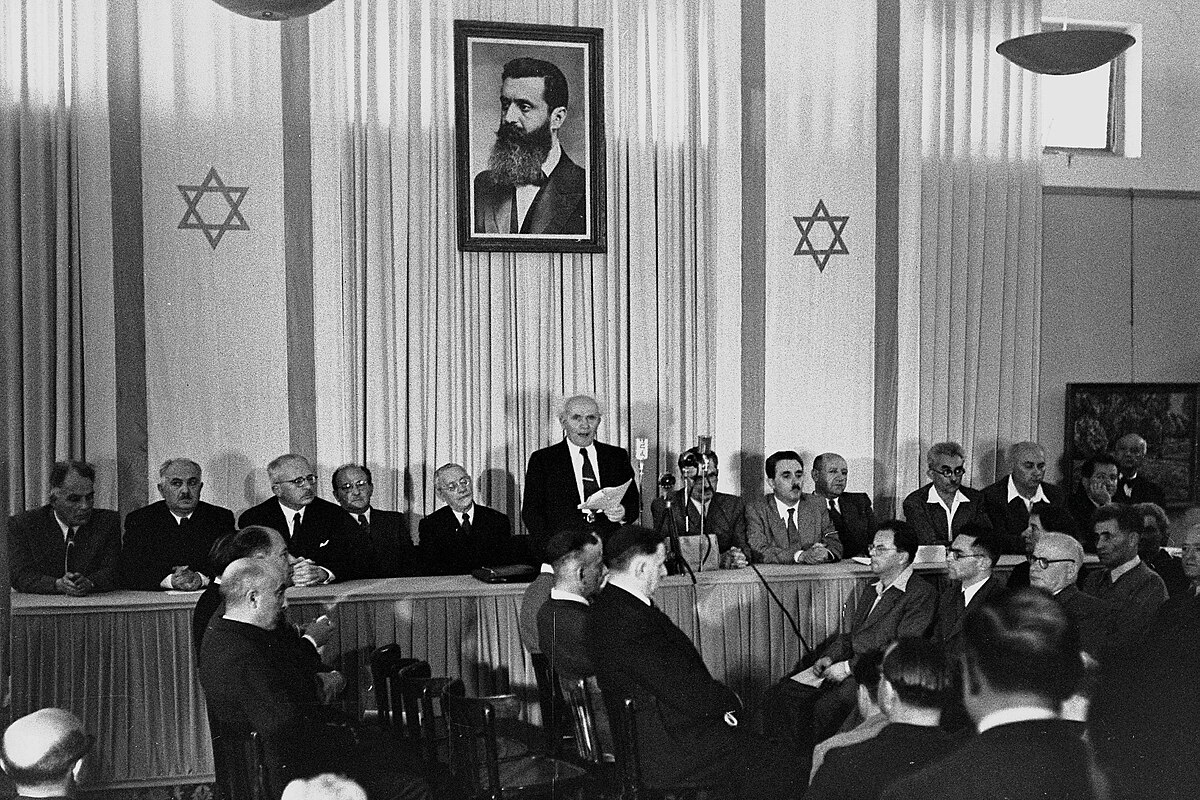Credit: Israel Ministry of Foreign Affairs
May 14, 1948 marked one of the most significant events of the 20th century: the proclamation of the State of Israel. After decades of mobilization by the Zionist movement and just months after the approval of the UN Partition Plan, David Ben-Gurion declared, in Tel Aviv, the independence of the modern Jewish state, bringing an end to a long period of dispersion and persecution.
The declaration not only fulfilled a millennia-old dream of the Jewish people, but also marked the beginning of a new geopolitical era in the Middle East.
The day after the declaration, Egypt, Jordan, Syria, Lebanon, and Iraq declared war on the new state, launching what would become known as Israel’s War of Independence. The conflict lasted about a year and resulted in the consolidation of Israeli sovereignty over much of the territory assigned by the UN, despite heavy human losses.
May 14 continues to be celebrated as a symbol of the Jewish people's self-determination and the resilience of a newly born nation facing major regional challenges.


































